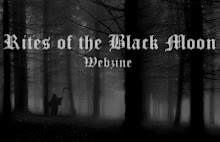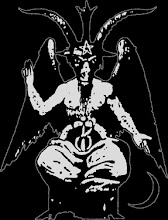
In September 1990, Testament released their fourth full-length, Souls of Black. Recorded in a different studio and produced by a different guy than the previous albums, this one made some corrections to the sound as it had developed on the previous record. The more melodic vocal approach remained, to a degree, though the emphasis was placed back where it belongs with regard to the overall sound; the guitars. In a sense, one could say that this album bears elements from each of its three predecessors while also having an identity of its own.
The title track was my introduction to this band, many years ago. I'd read of the band, but not heard anything. It was late one summer night when I called in to 'The Haunted Mansion' and requested that they toss in some old Testament. For a show that specialized in Black, Death and Doom Metal, it was a little difficult to make a proper segue into Thrash, but as Obituary's "Chopped In Half" faded out, I heard the sound of thunder that would lead into "Souls of Black". Despite being rather mid-paced, it was memorable enough to get stuck in my head and give me cause to go searching for Testament albums, first running across The Legacy. It took me until October or November to get my hands on this one, and it was certainly worth the wait.
The intro, "Beginning of the End", is a brief acoustic bit that serves a an adequate lead-in for the first real song, "Face in the Sky". As it begins, the pace is still more relaxed, similar to the previous album, though the delivery is far more energetic. Skolnick's lead work is on target, as well. The guitars sound a lot stronger than they did on Practice What You Preach, while the drums and bass aren't anywhere near as annoying as on that one. The guitars have a bit of an edge to them, again, which makes all the difference in the world.
The pace picks up a bit with "Falling Fast". Throughout this album, there's somewhat of a dreary feeling, similar to that felt on a cold and rainy day. Even as the songs speed up and give off a little more energy, everything remains laced with a somber sentiment. The reverb on the vocals gives some distant, ethereal quality, but never overpowering the guitar riffs.
As the thunder roars and a brief bass line rolls forward, the title-track lumbers forth. This is a mid-paced affair, though extremely memorable with regard to both vocal and guitar melodies. Of course, the solo is one that will pierce your skull with great ease. It's a fairly simplistic song, but sometimes less is more. The next track, "Absence of Light", follows a similar pattern.
"Love To Hate" sees the pace pick up, at times. Of course, the days of The Legacy are long-gone, but it's enough to provide the necessary variation for the album. It is here that some of the lead techniques found on The New Order seem to be employed with greater success, blending well into the piece as opposed to being somewhat detached. As with the rest of the record, the vocals and guitars share the responsibility of providing memorable melodies.
The intensity increases, if only by a slim margin, for "Malpractice". This may have something to do with the motivation behind the lyrics for this one. From the first verse, one can sense the frustration and anger.
"We all will go and stay sometime
Soon to be victim of a crime
Loss of blood and death is near
Take a number, can you wait right here"
Even two decades ago, it was clearly evident that the medical establishment is nothing more than a joke. It is a business, like any others. Hiding behind false sentiments of wanting to help those in need, the truth is that these butchers care for nothing but the almighty dollar. Chances are, they'll do more damage than good as a sort of job security. Most anyone should be able to identify with the lyrics, here.
"One Man's Fate" opens with an ominous feeling, assisted by the sweeping arpeggio riffs that Testament are well known for. This one keeps up the pace of the previous song, alternating between faster moments and more relaxed ones. As with the album as a whole, this possesses more of an organic feeling, as the riffs seem to have more room to breathe than in the past. The incredible solos compliment the song well. The tone seems to get a little darker, working well to blend into the mood of the song that follows.
Testament's previous attempt at a ballad yielded horrid results. However, "The Legacy" is a powerful piece of music, eliminating the flaws from previous attempts and delivering something far superior. This record truly possesses an autumnal feeling, in some sense. Perhaps this is due to the fact that I obtained it during the season of dying, but there seems to be some somber tone that is ever-present throughout the recording, similar to the feel of feeling the cold autumn winds chill you as the naked trees stood as claws against the grey sky. This song is very introspective and poignant, possessing a lot of feeling. Chuck Billy's vocal performance is top notch and the guitar melodies slither through your being, injecting venom into your very soul. There is a strong epic sense, here, almost giving the feeling that life is soon to end.
Before you are able to take that final plunge, "Seven Days of May" gives a much-needed does of adrenaline. Like a second wind, it enables you to continue on when, moments earlier, you were prepared to lay down and expire. This one is filled with energetic thrash riffs, though never reaching a frenetic pace by any means. The only way to really describe it is to say that it sounds like Testament. This could never be mistaken for anyone else, as their sound was well-defined by this time.
Technically speaking, Souls of Black may not be the best Testament album, though it's probably my second-favourite one (after The Legacy, of course). Perhaps, it is the result of sentimental reasons, or maybe it's simply because the album is very strong and consistent. Often times, this one is forgotten, but it stands as the final record from the band's classic era. There would be one more release with the original line-up, but that one is quite removed from their earlier output, stylistically. This is highly recommended.
.jpg)


